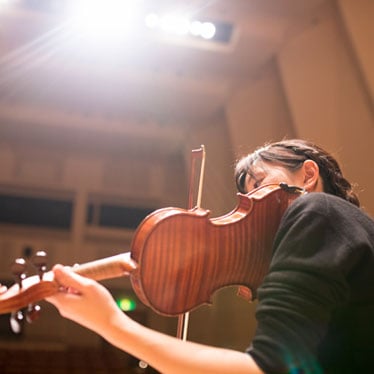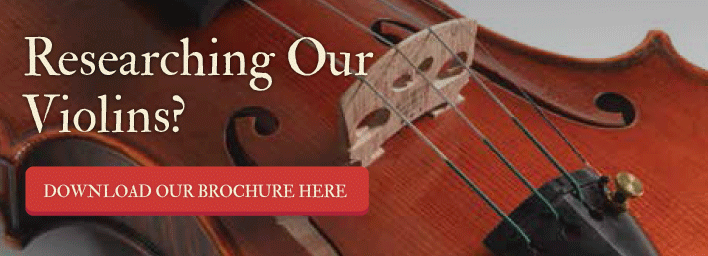5 Mistakes To Avoid During A Performance

Throughout your musical career, you will experience the thrill of concerts gone perfect, with each note played exactly as intended. However, you’ll also experience the opposite. There will be concerts where you make small mistakes – and there will probably be a concert or two where you make pretty big ones. You’re in good company.
Famed violinist Joshua Bell has told multiple interviewers about a major mistake he made at the Stulburg International String Competition, one that took place within the very first few measures of his selected piece, Symphonie Espagnole by Lalo. He was mortified at the time, but it sure didn’t ruin his career or his professional image.
Yes, the ultimate goal is to make as few mistakes as possible. In the meantime, here are five mistakes worth avoiding to experience as many smooth concerts or recitals as possible.
1. Being Unprepared
Preparation is your first line of defense. The more prepared you are, the less likely you are to make a mistake. This requires practicing your piece over and over again. Unfortunately, waiting until the last minute to do so is ineffective because the process required for the brain and the muscles to work together, sync, and form muscle memory around a piece takes cumulative repetition, over longer periods of time.
The more the musical piece is a part of your body, the less likely you are to make mistakes, and the more easily you’ll recover when you do make a mistake.
2. Letting Nerves Get the Best of You
Stage fright is your worst enemy. The more nervous and anxious you feel, the more likely you are to err – isn’t that ironic? Nerves cause hands to shake and an elevated breathing rate. It floods the brain with “fight or flight” hormones that decrease your ability to think logically. Thus, the more you can to get a handle on your pre-concert jitters, the more in control you’ll be of your performance.
In fact, we’ve even quoted professional violist Tabea Zimmermann on this point. She believes controlling concert jitters is an imperative part of a musician’s practice because they are often irrational – i.e., the brain saying you “can’t” do something you’ve so obviously have done time and time again in rehearsals.
3. Dismissing the Dress Code
“Concert dress” is part of musicianship. Unless you’re a soloist and have been instructed to dress differently from the rest of the orchestra, your “job” as a musician is to do all you can to support the mission of the whole. That includes being respectful of the concert dress code set by your conductor, teacher, or concertmaster. It is disrespectful to your fellow musicians and your conductor to do otherwise.
4. Not Communicating a Concern Ahead of Time
Keep your instructor/conductor informed. It is true that many orchestra teachers and conductors can be formidable and aren’t appreciative of errors that stem from student forgetfulness or lack of responsibility. That being said, they also don’t want to hear your squeaky bow because you forgot rosin and didn’t let them know, or have you playing an instrument that’s broken. They don’t want to hear you stumbling through a part because you forgot your sheet music – and were afraid to communicate with them ahead of time.
If you don’t have what you need, take a deep breath (suck it up, as they say) and confess your error so they can get you what you need and ensure you play your part to the best of your ability.
5. Not Knowing How to Handle the Mistake
Falling apart shows up louder than mistakes. In almost all but the grandest-level mistake, amateur performers’ lack of handling mistakes stands out more obviously than the mistake they made. Learning how to cover up your mistakes – or keep on keeping on – is one of the greatest skills you can learn as a musician.
Read, How to Recover From a Mistake While Performing, and then put those skills to work when you practice. That way, a graceful and effortless recovery becomes a natural response if you make a mistake during a performance.
Be sure to visit our other StringOvation Blogs to glean more performance tips throughout the busy holiday concert season.


